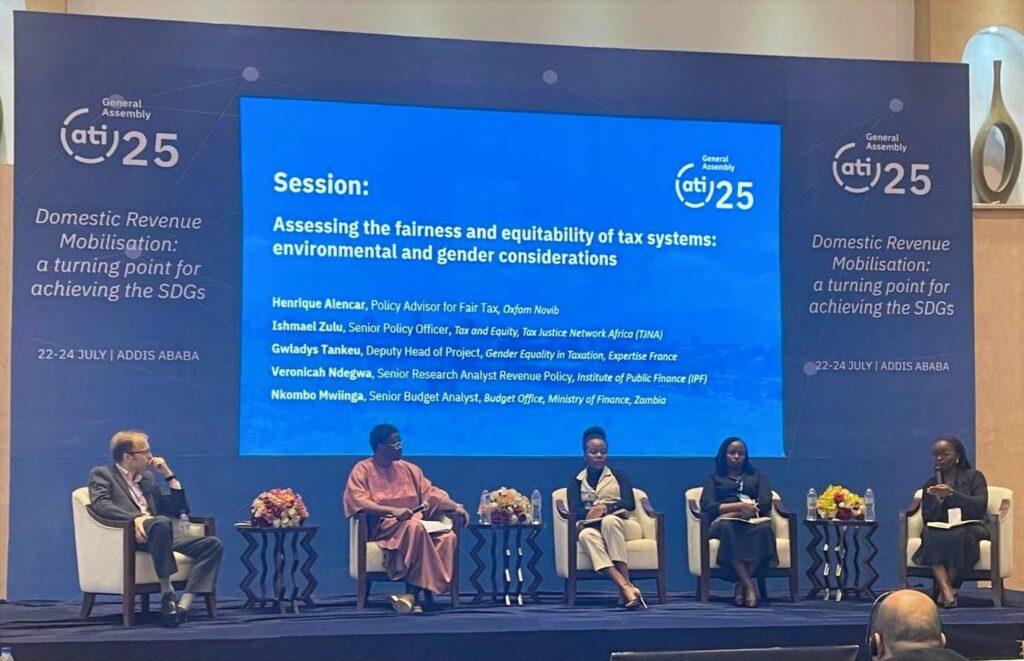From July 22 – 24, the 2025 Addis Tax Initiative (ATI) General Assembly took place in Ethiopia. Bringing together officials from tax administrations and finance ministries of African, Asian and Latin American countries, as well as representatives of civil society organizations and northern development partners, the conference was an excellent opportunity to showcase the FTM’s work on tax and gender and environmental taxation.
As an initiative that brings together 77 partner countries, development partners, and supporting organisations, the ATI has a focus on promoting tax systems that work for people and advance the Sustainable Development Goals (SDGs).

Henrique Alencar of Oxfam Novib and Ishmael Zulu of Tax Justice Network Africa representing the FTM at the ATI General Assembly
As both Oxfam and Tax Justice Network Africa are supporting organizations of the initiative, the ATI Secretariat invited both organizations to deliver a session on the FTM project with the objective of presenting the transformative impact that tax systems can have on gender inequality and environmental degradation.
In addition to an initial presentation by Oxfam and TJNA on the FTM project, its methodology and the achievements of the past ten years, the session also included a panel of experts that have interacted with the FTM project in different ways. The panel was formed by:
- Ms Veronicah Ndegwa, Senior Research Analyst at the Institute of Public Finance Kenya, currently developing the first FTM report with a thematic focus on environmental taxation in Kenya;
- Ms Gwladys Tankeu-Tchotet, Deputy Project Manager of the Gender Equality in Taxation (GET) project at Expertise France, partner on the development of tax & gender FTM reports in Benin, Cameroon and Senegal; and
- Ms Nkombo Mwiinga, Senior Budget Analyst at the Ministry of Finance of Zambia, sharing her experience on collaborating with civil society organizations following the publication of the Zambia Gender FTM (2022) and the decision to implement gender-disaggregated tax data in 2023.
As the panel included representatives from a Kenyan civil society organization, a French development partner and an official from the Zambian Ministry of Finance, the presentation provided a broad overview of the FTM project from different perspectives and multiple country contexts.
Due to the particular character of these topics, questions submitted by the audience re-affirmed the innovative nature of tax and gender discussions – even to seasoned tax experts – and persistent questions on how environmental taxation can be designed and implemented in a progressive manner.
The session proved to be a great opportunity to bring the FTM work on those thematic fields to such a high-level audience and reaffirm the principles of progressivity and fairness in the design and implementation of national tax policies.
